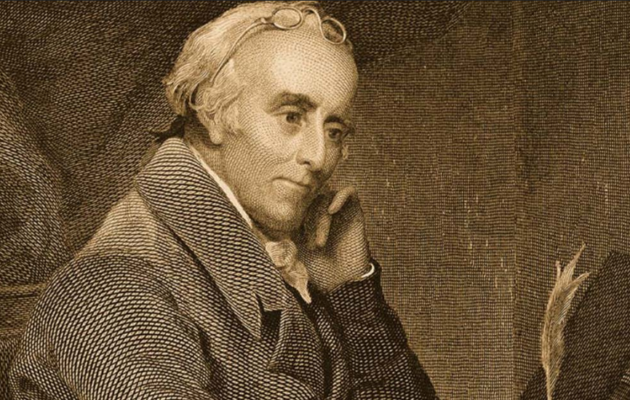We are heading into the celebration of our country’s birth. July 4th is fast upon us! As we reflect on this great day, let us remember the men who sacrificed so much to give us birth as free people.
Let’s continue with the Declaration of Independence signers. Dr. Benjamin Rush was a very famous signer and distinct American on many levels.
He was born in Philadelphia and was an American physician, scholar, and political leader. He took a medical degree from the University of Edinburgh, Scotland.
After graduating, he returned to America, began a medical practice, and was also appointed professor of chemistry at Philadelphia College.
He published the first American textbook titled, “Syllabus of a Course of Lectures on Chemistry.”
His practice grew to a substantial and significant impact. The American Medical Imprints lists that he has 65 publications under his name.
His influence was truly significant due to the large number of private apprentices and students from all over the country. It is estimated he taught some 3,000 students during his tenure as a professor at the University of Pennsylvania. His lectures were considered one of the leading cultural attractions of the city at the time.
In psychiatry, he labored among insane patients at the Pennsylvania Hospital, advocating humane treatment for them on the grounds that mental disorders were as subject to healing arts as physical ones. His Medical Inquiries and Observations upon the Diseases of the Mind, published in 1812, was the first and, for many years, the only American treatise on psychiatry.
He was an active patriot in the cause for freedom from British rule. He drafted a resolution urging independence and was soon elected to the Continental Congress, ultimately signing the Declaration of Independence.
He also served as a field surgeon for the Continental Army. He also served as the treasurer of the U.S. Mint by appointment of President John Adams.
He pioneered clinical research and instruction in medicine and chemistry. His unfortunate weakness was found in his insistence on the practice of bloodletting. This was an unnecessary treatment on many levels particularly in regard to yellow fever.
He had a strong and unwavering faith: A few quotes of his will clearly show his ardent love for God.
“My only hope of salvation is in the infinite transcendent love of God manifested to the world by the death of His Son upon the Cross. Nothing but His blood will wash away my sins. I rely exclusively upon it. Come, Lord Jesus! Come quickly.”
“The great enemy of the salvation of man, in my opinion. never invented a more effective means of limiting Christianity from the world than by persuading mankind that it was improper to read the Bible at schools.”
Christianity is the only true and perfect religion; and in proportion as mankind can adopt its principles and obey its precepts, they will be wise and happy.
Finally,
“Without religion the can be no virtue, and without virtue there can be no liberty, and liberty is the object and life of all republican governments.”
As you can see he was a definite proponent of faith in Christ and lived his life in that light.
Until next time….
